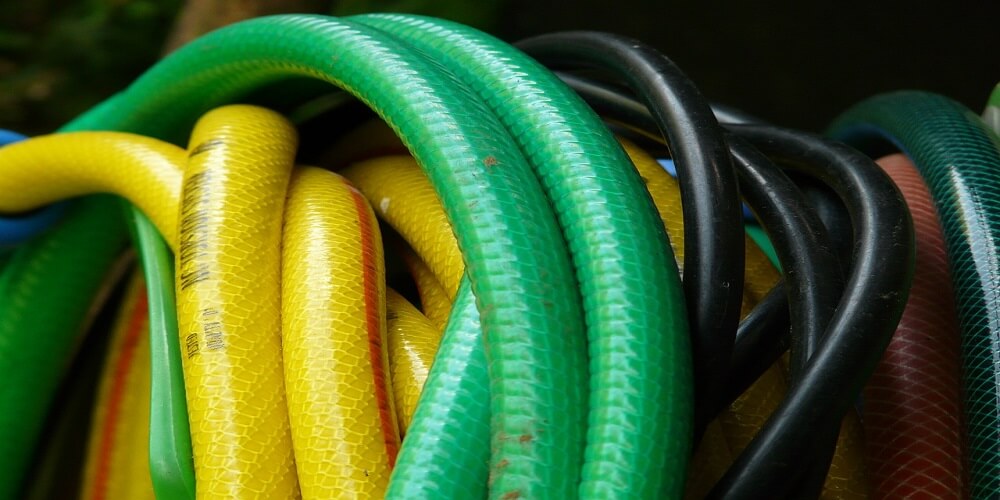Like almost all things, water hoses come in different materials. Each material has its own pros and cons. So how would you know which water hose material is best for you?
Here, we give you the different materials available in the market and their pros and cons.
Water hose material – pros and cons
Vinyl
Vinyl is usually supported with another material, such as nylon mesh in multiple plies or cording, for it to be more durable. The material is stiff and prone to kinking on the same spot. Vinyl water hoses are best for sprinkler attachment when you want to leave the water on most of the day. Vinyl water hoses may be the cheapest type of water hose that you can buy today.
Pros:
Least expensive hose material
Cons:
The material is stiff so the hose is harder to coil
Polyurethane
This water hose material is lightweight but it is not that stiff and bendable. Polyurethane water hoses usually have a smaller diameter so this can affect your desired water output, making them not a good choice for sprinklers.
Pros:
Lightweight and easy to haul around.
Cons:
The material is not bendable or stiff enough.
Rubber
Rubber water hoses are construction-grade so you can expect them to last for a long time. The material is durable enough to take a beating and it feels heavy yet you will find that it is easy to coil. Kinks can be easily shaken out and they barely leave a crease on the material.
Pros:
Long-lasting and durable
Cons:
Heavyweight. You may have difficulty hauling this around your garden.
Polymer
Polymer water hoses are best for households because the material is drinking water safe – so you do not have to worry about your pets or kids drinking from the hose (as long as you know your water line is safe too!). Polymer is a soft and flexible material that you can easily move around container gardens and pots.
Pros:
Lightweight and easy to use.
Cons:
Kinks will happen often, you need to make sure that you deal with them as soon as you notice them.
Metal
Metal water hoses are more expensive but metal is a durable and lightweight material, which makes them worth the pricier tag. Water hoses made out of metal will release you from dealing with kinks – although there are times when they can get twisted up. The problem is that it can easily get caught on pavement cracks or corners so you have to dislodge them from time to time.
Pros:
Durable and lightweight.
Cons:
Gets snagged in cracks and corners. You have to be careful when you dislodge them so you will not damage the material.
Expandable
Expandable water hoses are usually made out of a rubber tube and stretchy fabric. Its major selling point is that they can be laid out flat when not in use so they are easier to store and you do not have to deal with coiling problems!
Pros:
Easy storage because of the material.
Cons:
The fabric can easily get dirty. You might have to clean it up often if that bothers you.
Last Thoughts
As you can see, you have a wide variety of choices when it comes to water hose material. No matter what type of material you choose, you should get yourself a hose reel. This will solve all your storage problems for you and they have a stable retraction mechanism that allows you to clear up effortlessly after you use the hose.
